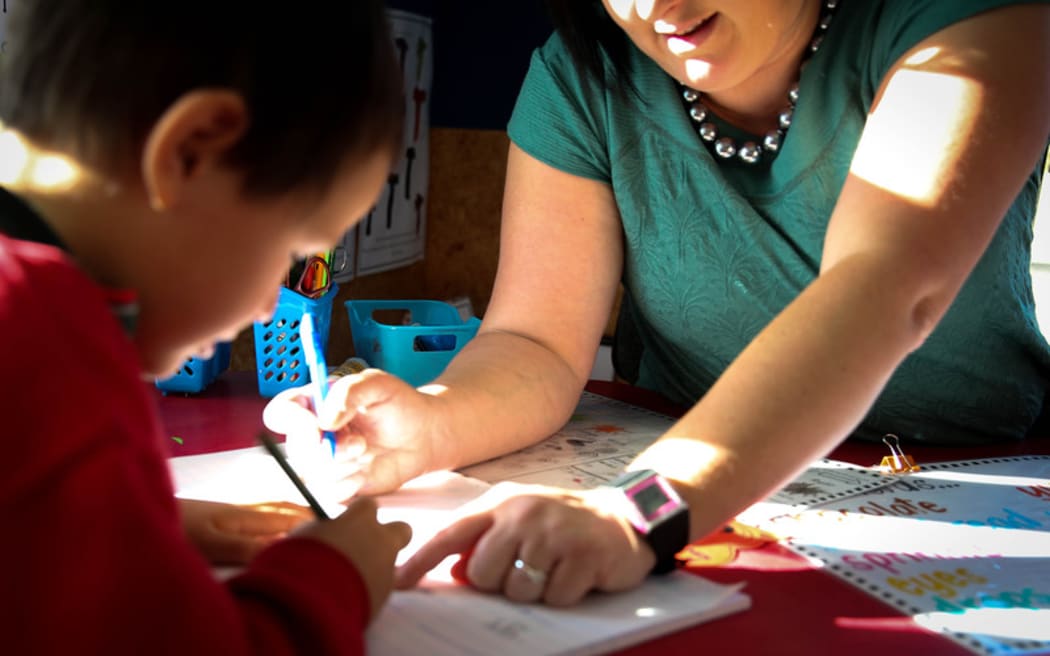The government halved the number of teachers who would get extra pay under its Investing in Educational Success policy, official documents show.

Photo: RNZ / Alexander Robertson
The Cabinet papers and advice show the development of Investing in Educational Success, a scheme which encourages schools to form clusters and pays top teachers and principals thousands of dollars extra.
The Ministry of Education has published the information 18 months after Radio New Zealand asked for it.
One of the documents said the scheme would cost $300 million a year once fully implemented but later refinements brought that down to $155 million.
Those changes included reducing the number of "lead teachers" receiving $10,000 a year extra from 10,000 to 5000, and reducing the amounts paid to "executive principals" and "expert teachers" by $10,000 each.
The figures were reduced even further and the job titles changed after negotiations with the Post Primary Teachers' Association and principals' groups refined the scheme last year.
Also dropped from the policy was a plan to pay teachers and principals more for working in the most challenging schools.
The papers said a "salary supplement for schools with challenges" would help schools attract and retain excellent staff.
They said about 80 schools might qualify, based on criteria including poor student achievement, difficulting hiring teachers, and statutory interventions aimed at getting them back on track.
The papers showed the Government considered making the scheme mandatory by putting all schools into a cluster, or targetting it to the schools with the highest need.
However, it opted to open the scheme to all schools while getting them to form their own clusters.
The Educational Institute has opposed the policy and is negotiating an alternative with the Education Ministry.
Secretary Paul Goulter said the papers contained no proof the teacher and principal roles created by Investing in Educational Success would work.
"Teachers I know all round the country have said 'where's the evidence for this model'.
"We've gone back through this documentation and it just seems to be an article of faith that those roles were going to do the trick and we continue to ask, where is the evidence."
So far, 222 schools had formed 29 "communities of schools" under the scheme.



